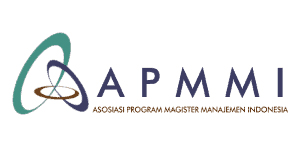The Influence Of E-Filing Implementation On Taxpayer Compliance Through Service Quality Satisfaction At Kpp Pratama Sidoarjo Barat
DOI:
https://doi.org/10.30996/jmm17.v12i1.13007Abstract
The purpose of this study is to examine the impact of e-filing implementation on taxpayer compliance through service quality satisfaction at KPP Pratama Sidoarjo Barat. This research employs a quantitative approach with a survey method, using a sample of 100 taxpayers registered at KPP Pratama Sidoarjo Barat. Data analysis is conducted using the Partial Least Squares (PLS) technique through the SmartPLS 4 application. The data testing techniques applied in this study include validity tests, reliability tests, discriminant validity tests, Fornell-Larcker tests, cross-loading tests, R-square tests, and t-tests. The findings indicate that the implementation of e-filing has a positive and significant effect on taxpayer compliance through service quality satisfaction, with a significance value of 0.000 < 0.005. Indirect analysis results reveal that e-filing implementation (X), mediated by service quality satisfaction (Z), significantly influences taxpayer compliance (Y). These results highlight the crucial role of service quality satisfaction in strengthening the relationship between e-filing implementation and taxpayer compliance. This study provides insights for tax authorities to enhance digital tax services by improving e-filing usability, accessibility, and service quality. By optimizing these factors, tax authorities can increase taxpayer satisfaction and, consequently, improve voluntary tax compliance.
Downloads
Downloads
Published
How to Cite
Issue
Section
License
Authors who publish to JMM17: Jurnal Ilmu Ekonomi Dan Manajemen agree to the following terms:
- Authors transfer the copyright and grant the journal right of first publication with the work simultaneously licensed under a Creative Commons Attribution-ShareAlike 4.0 International License.. that allows others to share the work with an acknowledgement of the work's authorship and initial publication in this journal.
- Authors are able to enter into separate, additional contractual arrangements for the non-exclusive distribution of the journal's published version of the work (e.g., post it to an institutional repository or publish it in a book), with an acknowledgement of its initial publication in this journal.
- Authors are permitted and encouraged to post their work online (e.g., in institutional repositories or on their website) prior to and during the submission process, as it can lead to productive exchanges, as well as earlier and greater citation of published work (See The Effect of Open Access)












